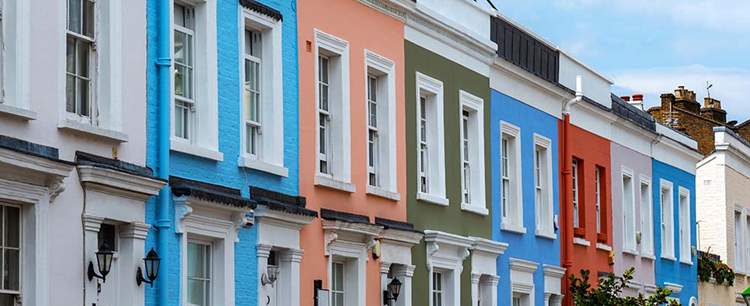It has been a dramatic and colourful week in politics, but UK property news has risen to the challenge of creating interesting and attractive headlines.
Here are just a few of those stories focussing on the prospect of especially long-term mortgages, the billions of pounds tied up in empty homes, the attractions to landlords of incorporation, the supply of homes to the housing market, and an overall view of UK property prices.
Families may be offered mortgages of 50 years
As part of policies designed to help more people into homeownership, the government intends to encourage lenders to consider granting mortgages of 50 years or more, according to a story in the Mail Online on the 2nd of July.
Instead of mortgages granted in the expectation of their being paid off during the borrower’s lifetime, these long-term borrowing plans envisage mortgages being handed down from one generation to the next.
It is argued that this will allow more families to help younger members get a first step on the housing ladder, into bigger homes, and with a reduced liability for inheritance tax – inheritance tax is applied only to the equity owned in a home, so the bigger the outstanding mortgage, the less tax there is to pay.
£194.3bn worth of vacant homes sat empty
The value of empty or “dormant” homes has reached the staggering sum of more than £194 billion, according to a story in Introducer Today on the 28th of June.
Recent research has shown that there is a total of 653,025 homes that can be classified as dormant in England – with regional variations in numbers also responsible for differences in the value of such properties.
In London, for example, which has seen a 9% increase in the number of dormant homes in the last 12 months, the total value of those empty properties is estimated to be £46 billion (based on the average home in the capital now costing £523,665).
In the northeast of England, by contrast, the number of vacant homes has fallen by 6% in the past year – although the total value of those empty properties is still put at an estimated £6.3 billion.
Big leap in landlords setting up limited companies for buy to let
In a story on the 7th of July, Landlord Today has detected a big jump in the number of private sector landlords deciding to incorporate their buy to let businesses as limited liability companies.
Nearly a half of all landlords owning between one and five let properties have indicated their intention to buy the next one after incorporation as a limited company. For those landlords owning six or more properties, that proportion of prospective company ownership rises to more than three out of every four landlords.
Two-thirds of the surveyed landlords said that they would be making any further property investment by way of a buy to let mortgages while 28% said they would instead use funds released from their equity in the properties they already owned.
UK home sellers bring more properties to market
The marked imbalance of supply and demand that has at least partly fuelled the recent surge in UK house prices could soon be restored to a semblance of stability as more homes are put on the market, revealed Bloomberg on the 5th of July.
The American media outlet claimed there has been a 24% increase in the number of homes currently offered for sale – with a 14% increase in the past two weeks alone.
Such an increase in supply will help to meet the post-pandemic surge in demand and this, in turn, will also slow down what has been frenetic activity in the housing market.
UK property prices rise at the fastest rate in 18 years
A contrary view is taken in a report by the Guardian newspaper on the 7th of July.
The UK newspaper argued that a continued imbalance in supply and demand was fuelling the fastest growth in house prices that has been seen in the past 18 years. Because demand continues to outstrip supply, says the newspaper, the price of a home inevitably increases.
Far from there being any slowdown, the Guardian pointed to a 13% annual increase in house prices to the end of June – the biggest leap in average prices since 2004. Prices in June rose by 1.8% compared with the preceding month – the steepest monthly increase since 2007.
The price of the average home in the UK continues to rise and – at £294,845 – has now nearly reached yet another milestone of £300,000.






